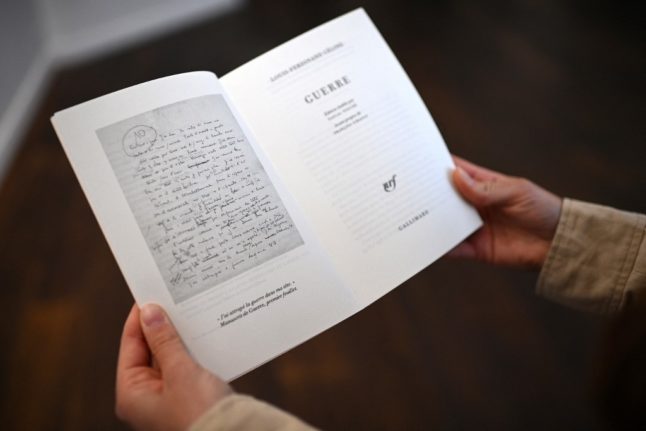LITERATURE
Novelist Stridsberg becomes first Swede to be nominated for Man Booker Prize
The nominees for the Man Booker International Prize were announced on Wednesday and for the first time ever the list included a Swedish author.
Published: 13 March 2019 16:06 CET

Novelist Sara Stridsberg. Photo: Jessica Gow/TT
Sara Stridsberg is one of 13 authors on this year’s longlist for the literary award.
The Swedish author is nominated for ‘The Faculty of Dreams’, the English translation of her 2006 novel 'Drömfakulteten'. The translation was done by Deborah Bragan-Turner and is scheduled for widespread release on March 21st.
The novel is a fictionalized account of the life of American feminist Valerie Solanas, who is best known for shooting Andy Warhol. The book was awarded the 2007 Nordic Council Literature Prize.
In announcing this year’s competitors for “the finest works of translated fiction from around the world,” Bettany Hughes, the chair of the judging panel, said that the 13 books on the longlist “enrich our idea of what fiction can do”.
“This was a year when writers plundered the archive, personal and political. That drive is represented in our longlist, but so too are surreal Chinese train journeys, absurdist approaches to war and suicide, and the traumas of spirit and flesh,” she said.
The Man Booker International Prize is the global complement to the Man Booker Prize, which is awarded each year to the best English-language novel as deemed by a jury commissioned by the Booker Prize Foundation. The international edition of the prize has been around since 2005 and was originally awarded every second year to an author whose work is published in English. In 2016, the awarding of the prize was changed to an annual event and since then it has focused solely on works of fiction that have been translated into English and published in the UK and Ireland.
The 13 books will be cut down to a shortlist of six books on April 9th and the eventual winner will receive £50,000.
Stridsberg was one of several members to quit the Swedish Academy over a sexual harassment scandal that rocked the Swedish cultural world.
Url copied to clipboard!


 Please whitelist us to continue reading.
Please whitelist us to continue reading.
Member comments